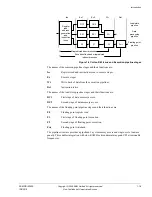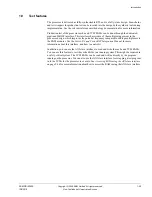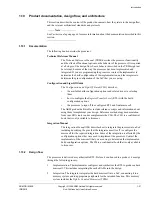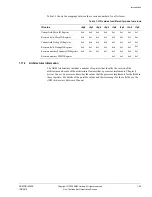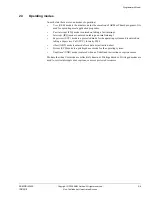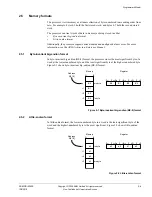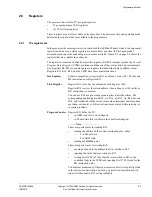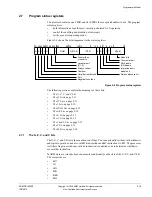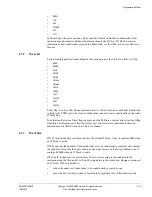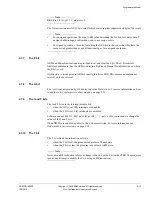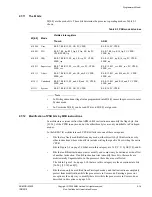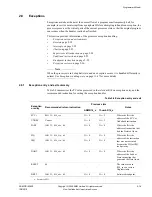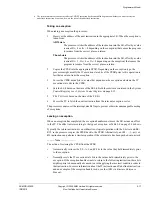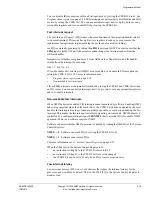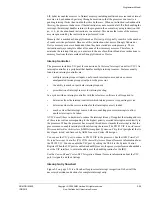
Programmer’s Model
ARM DDI 0363E
Copyright © 2009 ARM Limited. All rights reserved.
2-7
ID013010
Non-Confidential, Unrestricted Access
2.6
Registers
The processor has a total of 37 program registers:
•
31 general-purpose 32-bit registers
•
six 32-bit status registers.
These registers are not all accessible at the same time. The processor state and operating mode
determine the registers that are available to the programmer.
2.6.1
The register set
In the processor the same register set is used in both the ARM and Thumb states. Sixteen general
registers and one or two status registers are accessible at any time. In Privileged modes,
alternative mode-specific banked registers become available. Figure 2-3 on page 2-9 shows the
registers that are available in each mode.
The register set contains 16 directly-accessible registers, R0-R15. Another register, the
Current
Program Status Register
(CPSR), contains condition code flags, status bits, and current mode
bits. Registers R0-R12 are general-purpose registers that hold either data or address values.
Registers R13, R14, R15, and the CPSR have these special functions:
Stack pointer
Software normally uses register R13 as a
Stack Pointer
(SP). The
SRS
and
RFE
instructions use Register R13.
Link Register
Register R14 is used as the subroutine
Link Register
(LR).
Register R14 receives the return address when a
Branch with Link
(
BL
or
BLX
) instruction is executed.
You can use R14 as a general-purpose register at all other times. The
corresponding banked registers R14_svc, R14_irq, R14_fiq, R14_abt, and
R14_und similarly hold the return values when interrupts and exceptions
are taken, or when
BL
or
BLX
instructions are executed within interrupt or
exception routines.
Program Counter
Register R15 holds the PC:
•
in ARM state this is word-aligned
•
in Thumb state this is either word or halfword-aligned.
Note
There are special cases for reading R15:
•
reading the address of the current instruction plus, either:
—
4 in Thumb state
—
8 in ARM state.
•
reading
0x00000000
(zero).
There are special cases for writing R15:
•
causing a branch to the address that was written to R15
•
ignoring the value that was written to R15
•
writing bits [31:28] of the value that was written to R15 to the
condition flags in the CPSR, and ignoring bits [27:20] (used for the
MRC
instruction only).
You must not assume any of these special cases unless it is explicitly stated
in the instruction description. Instead, you must treat instructions with
register fields equal to R15 as Unpredictable.

